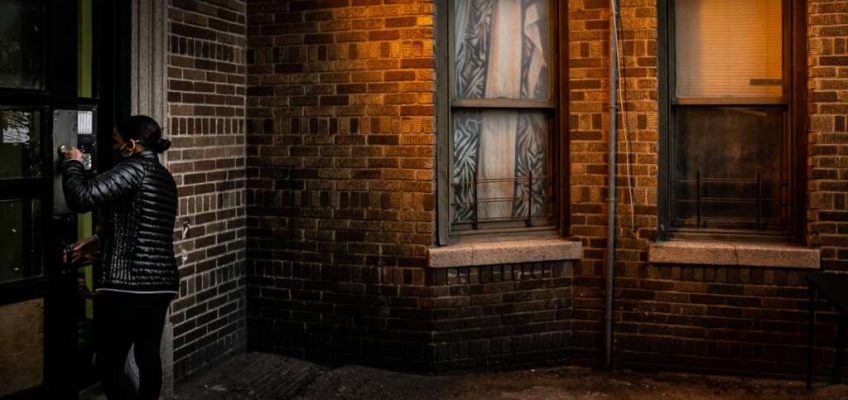“I learned the hard way that affordable housing isn’t guaranteed—it’s conditional. The moment your income changes or an agency misses a form, the system recalculates your worth and can pull the rug out from under you.”
An apartment building in The Bronx. (Adi Talwar/City Limits)
When I received a housing voucher, I was finally able to move into a rent-stabilized apartment in what many would call a “luxury” building. I was told that if I maintained the apartment for five years, my rent would be locked in. But when COVID-19 hit, my case management through Homebase fell apart, and I had to pay the rent from my Social Security Disability income just to stay housed.
I learned the hard way that affordable housing isn’t guaranteed—it’s conditional. The moment your income changes or an agency misses a form, the system recalculates your worth and can pull the rug out from under you. The recertification process has become a quiet form of income discrimination, punishing stability instead of supporting it. These systems are set up for people to stay stuck or fail. They claim to promote independence, but the fine print ensures dependence.
Seniors and families with children are the most vulnerable. Toby, 10, cried when his mother told him they had to go to a shelter. He lost his school, his friends, and his sense of home. Nearly a year later, he laughed again when his mom was finally awarded a housing voucher. For the first time, he felt safe.
But today, at 16, Toby is back on unstable ground—his family must leave the apartment they fought so hard to keep. The fear and displacement he experienced as a child have returned, and this time, the pain runs deeper. Children internalize trauma quickly, and Toby’s story is not unique. When families are forced to move again and again, we are watching the slow unraveling of a generation.
And then there are our seniors—the silent backbone of our communities—being told to work longer, to survive on less, and to somehow “adjust” as costs climb and health declines. Many of us have already raised families, buried loved ones, and outlived friends. We are tired, yet the system demands endurance instead of compassion. Seniors shouldn’t have to prove their productivity to deserve peace. Stability and dignity in housing should be a right, not a reward for those who can still punch a clock.
If we are serious about ending homelessness, we must reform the voucher recertification process so that progress isn’t penalized and stability isn’t temporary. Families who rise should not be punished for surviving, and elders who have given their best years should not be left to struggle alone.
City and state agencies must also invest in clear education for tenants with subsidies—plain-language guides, real-time alerts, and transparent communication about what happens when income or benefits shift. Housing should not be a secret exam that no one is taught how to pass.
With a new mayoral administration on the horizon—and Mayor-elect Zohran Mamdani promising “affordable housing” and rent freezes—it’s time to demand accountability for what those words really mean.
Affordability without security is a half-truth. Until recertification reform, transparency, and tenant education are prioritized, we are not building affordable housing—we are maintaining conditional housing. The next mayor has an opportunity, and an obligation, to change that.
Rhonda Jackson is co-chair of the NYC Fund to End Youth and Family Homelessness, a steering committee member of the NYC Family Homelessness Coalition* and a longtime advocate for housing as a human right. A survivor of homelessness herself, she works to ensure that no child grows up believing instability is normal.
*The Family Homelessness Coalition is among City Limits’ funders.
The post Opinion: Conditional Housing Is Still Discriminatory appeared first on City Limits.


Leave a Reply